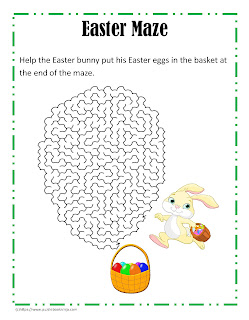Puzzle Types-Part 1
You know what you love, right? You love word search puzzles, crossword puzzles, Sudoku* puzzles, mazes, find the differences, jumbled puzzles, Kakuro, ciphers, and a list of other puzzles to numerous to mention. Who doesn't love those mind teasers?! I guess we assume that everyone loves what we love when it comes to puzzles.
With so many puzzles out there, let's try to organize them. Perhaps, we can gain some insight into why people like certain types of puzzles over others.
One popular puzzle company, PennyPress, offers puzzles that can keep you busy for a very long time. My favorite is the Puzzler's Giant Book of WORD GAMES.
 |
| PennyPress - Giant Book of Word Games |
But, let's not get ahead of ourselves, here. It almost feels like I am going down another rabbit hole. So, to pull back and get organized, let's start with organizing puzzles into 4 basic and general categories:
- word based puzzles (similar to word searches/find a word/word seek, crossword puzzles and cryptograms)
- picture, or image based puzzles (like rebuses and mazes)
- logic puzzles (examples include riddles)
- number based puzzles (like Sudoku)
Word Based Puzzles
This category of puzzle is based on using language, or words, to create puzzles.
Word Search Puzzles
The basic word search puzzle includes a list of words that puzzle solvers need to locate in the grid. The grid is made up of the words that go, usually, vertically, horizontally, diagonally and in all 8 directions. This increases the challenge! Any left over spaces are filled in randomly with the 26 letters of the alphabet. The level of difficulty is based on number of words to find and the size of the grid.
 |
| Grade 1 Dolch Words |
The above word search puzzle is an example of an easy puzzle, geared towards students learning the basic Dolch word list for Grade 1. This contrasts the more complex topic and grid size of the Periodic Table of Elements Word Search Puzzle below:
 |
| Periodic Table Word Search Puzzle |
Crossword Puzzles
These puzzles include a grid where answers to clues are filled in. Clues can be as direct (1st President of the USA) or obtuse (puns, idioms, cryptic) as the crossword puzzle maker (cruciverbalist) wishes to make them.
 |
| Periodic Table Crossword Puzzle |
My experience with some crossword puzzles is that it requires a general level of knowledge from a variety of topics. Other crossword puzzles can be theme specific like the images above. Educators enjoy using crossword puzzles as an evaluation tool to assess students' knowledge and understanding of a topic.
Cryptograms
Cryptogram puzzles were one of my favorites as a kid. But, recently I discovered Cryptolists! These puzzles are similar to cryptograms, but are a list of words with the encrypted alphabet code.
 |
| Father's Day Cryptolist Puzzle |
Cryptolists contrast cryptograms, which are usually quotes, or comments with an encrypted alphabet code.
While the above maze is geared towards kids and Easter, adults love them too!
What is helpful when solving cryptograms is that we are familiar with letter patterns, word patterns, as well as how oral language is put together. This base knowledge, combined with the topic or heading, help with the deciphering of the cryptogram.
Picture Based Puzzles
Image based puzzles are great fun, and a break from the heady work needed to solve some crossword and cryptic puzzles.
Mazes
Mazes are puzzles that require the solver to find (from the entrance of the maze) and trace a path through a series of branching and non-branching routes until the goal is reached (exit or 'basket of Easter eggs' image).
 |
| Easter Maze Puzzle |
While the above maze is geared towards kids and Easter, adults love them too!
And, to contrast Pi, at least this puzzle has an END!
Rebus Puzzles
This is another favorite puzzle of mine. It combines images and words to create a story. It is a great way to get kids learning about the picture word connections as they learn to read. A more challenging form of this, in my view, are the mind teasers that use puns, expressions, plays on words, images, and symbols to create the puzzle. Some people call these Wackie Wordies! I briefly introduced them in my earlier post, here. You will need to scroll down to find examples of these Wackie Wordies.
Here is a short rebus.
| SOLVE The Puzzle |
Logic Puzzles
Logic puzzles come in many forms. Let's look at one type, the riddle.
Riddles
Here are some examples to jump start your journey:
- What goes up the chimney down, but cannot go down the chimney up?
- A rooster is sitting at the peak of a roof. On what side of the roof does the egg roll down?
- What is something that belongs to you, but everybody else uses?
Number Based Puzzles
Puzzles need to include the mathematical side of life, too! Number based puzzles tend to include any puzzle that has numbers in it.
- Sudoku*
- Kakuro
- KenKen*
- Calcudoku
- Mathdoku
Each variety has its own characteristics and levels of difficulty. For a myriad of choices, check out KrazyDad's website: https://krazydad.com/
Next Steps
Now that I have somewhat organized puzzles into general categories, it still remains incomplete. Look to the future and another blog post: Puzzle Types - Part 2
Next planned blog post
How To Solve Puzzles Easily
Answers to the Rebus and Riddles
Question
Do you prefer language based or number based puzzles? What might be the reason why we choose one puzzle type over another?
Leave your answer in the comments section below.
Cheers,
Liz
*any registered trademarks have their (R) implied in blog posts.


No comments:
Post a Comment
Thank you for your comments. They have been submitted for moderation.